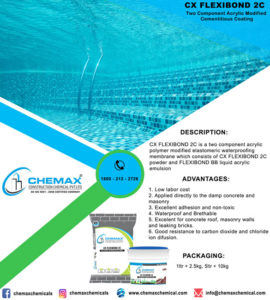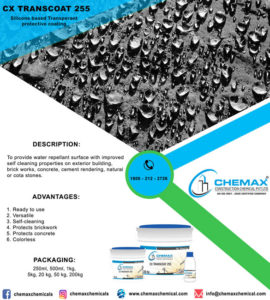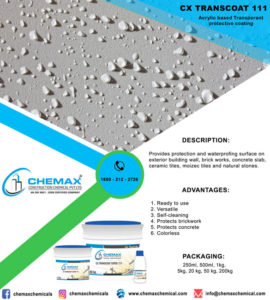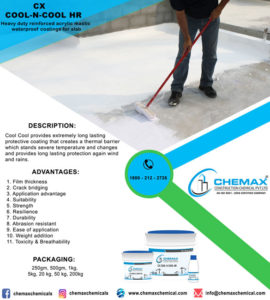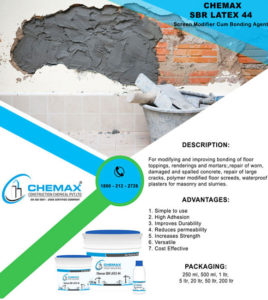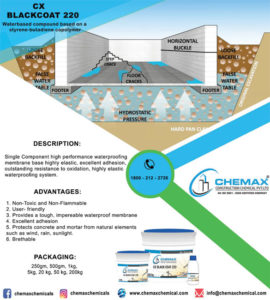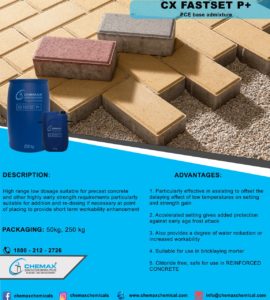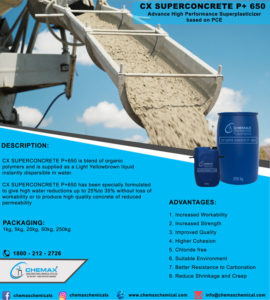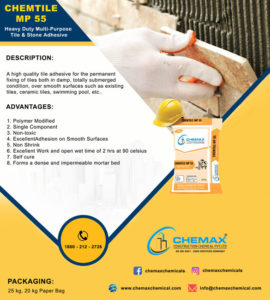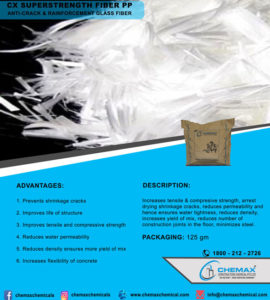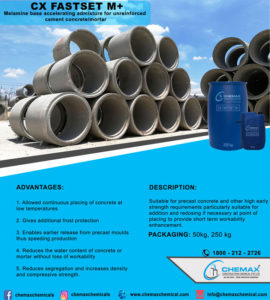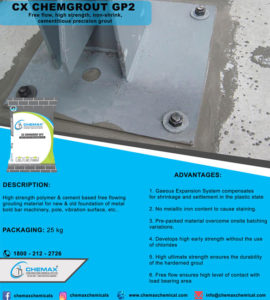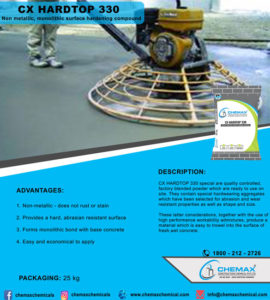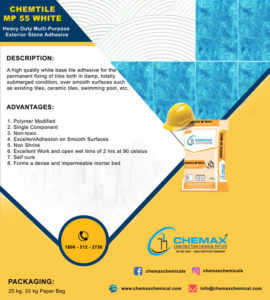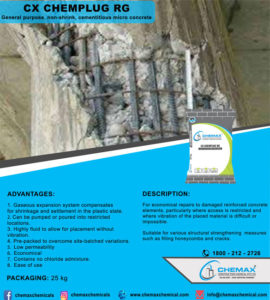Your individuality is reflected in the home you build. Since building a new house is not something you do often, you want to utilize the best and most durable materials. One of the most crucial features of a new home is the tiling. The kitchen and bathrooms serve as the house’s mirrors, either improving or detracting from the appearance of your home. A well-executed tile installation may revitalize your kitchen or bathroom for many years to come. Next, choosing the appropriate grout is just as crucial as choosing the appropriate tiles since it seals the joints between the tiles to provide a tile surface that is waterproof. The market is currently filled with two varieties of epoxy grout for tiles: premium epoxy grout and regular cement grout. In this post, epoxy grout will be the main topic.
CHARACTERISTICS OF EPOXY GROUT FOR TILES
Epoxy grout for tiles is a three-component epoxy resin-based grout that is sanitary, stain-resistant, and extremely resistant to chemicals, abrasion, and impact. The grout has hardened, preventing dirt and bacteria from penetrating and tainting food goods. It is also readily maintained in a sterile state. A vast variety of tiles and stones, including glazed tiles, mosaics, vitrified and fully vitrified tiles, industrial tiles, granites, marbles, and other natural stones, can all be grouted using epoxy grout. To give the flooring a neat and eye-catching finish, grouting is applied in tile segments. A robust seal is created between the tiles using epoxy grout. The primary ingredients of epoxy grout are epoxy resins and a filler material, which chemically react with one other to form the grout material. Epoxy resins and a filler material are the main components of epoxy grout ( For Tiles ) , and they combine chemically to form the grout substance.
Tile epoxy grout is thought to be better suited for interior tiles and is typically not advised for outdoor use due to the grout’s propensity to deteriorate over time when exposed to sunshine and UV radiation.
LATICRETE EPOXY GROUT
An excellent and simple epoxy grout to use is Laticrete. All you need to do is follow the instructions to make it very simple to combine. It can also be applied quite easily. Your tiles won’t have any residue if you merely remember to follow up with the appropriate cleaning rinses. This is the best and lightest one-step polymer-fortified tile mortar available for installing ceramic, porcelain, glass, stone, quarry, paver, and brickwork indoors and outdoors. Since the grout may get discolored after prolonged exposure to sunshine and its UV rays, it is typically not advised for use with exterior tiles and is more appropriate for use with interior tiles.
EPOXY GROUT FOR TILES
With the highest care and accuracy, we construct our two-part epoxy-based epoxy grout for tiles so that it is resistant to wear and tear. It is the best grout available, giving your tiles a beautiful finish and long-lasting durability. Additionally, it shields filled tile and stone grooves against chemical attacks, spills, and stains. It must be utilized after thoroughly mixing parts A and B, which are its two constituent parts, evenly.
The benefit of these two components is that when they are placed to the groove and mixed, they become strong and unbreakable. Its crystalline shine effect and easy clean ability are attributed to a chemical that leaves a lovely, smooth finish when applied. It can be applied to damp and moist areas as well as residential and commercial installations, including those with complete hygienic control.
WHERE CAN EPOXY GROUT BE APPLIED?
Epoxy grout is a tile grout that can be used to install and grout wall and floor tiles, granite, marble, pavers, mosaics, and other materials. The grout joints can have a thickness of 2 to 15 mm. It is applicable to the following:
- Tiles on the walls and floors of bathrooms and showers.
- Tiles for the walls and floors in common areas.
- Countertops in the kitchen.
- Terraces and Balconies.
- Plants that process.
- Storage facilities.
- Restaurants and other establishments that allow direct contact with dairy, meat, etc.
- Appropriate for surfaces exposed to strong chemicals.
- Ideal for grouting tanks, swimming pools, etc.
BENEFITS OF USING EPOXY GROUT
Compared to standard cement sealants, it is simpler to apply and maintain.
- It can be applied to any kind of tile because it is available in a multitude of hues.
- It is extremely hard and mechanically strong.
- It absorbs relatively little water.
- It is chemically resistant.
- It bonds well with various materials.
- It resists UV rays and is dyed.
- It offers consistent color and is impervious to weathering agents.
- It does not break when it solidifies.
- It can sustain a lot of traffic and has a high strength.
HOW TO APPLY EPOXY GROUT
The tile coverings need to have an even layer of epoxy grout poured.
After thoroughly grouting the joints, place the filler on the tiles in a diagonal pattern to fully seal them.
With the spreader, quickly remove the majority of the extra grout, leaving only a thin layer or film on the tile.
After that, immediately and thoroughly clean the surface.
To clean the tiles and prevent grout from being removed from the joints, use a large, thick sponge bathed in clean water.
Replace the sponge if necessary after it becomes soaked with epoxy grout, and rinse often to guarantee that clean water is used at all times.
To avoid getting into the joints, move the sponge diagonally across the tiles to complete the cleaning.
HOW LONG DOES IT TAKE FOR EPOXY GROUT TO CURE?
Epoxy grout cures and is ready for use significantly faster than cementitious grout since it doesn’t need to be sealed. once you’ve completed grouting and installing your new set of tiles. Next, the topic of how long to wait before using the freshly grouted tile in the kitchen / bathroom arises. What is the drying time for epoxy grout?
Normally, grout takes between 24 and 72 hours to dry after application. It usually takes 48 hours for epoxy grout to dry, but you have to make sure you follow the directions on the product’s instructions. If the grout is placed outside, it can dry in 48–72 hours, and if it is placed indoors, it can dry in as little as 24 hours. Nevertheless, a few variables, such as the kind of grout, humidity conditions, and whether the grout will be used indoors or outdoors, will affect the precise drying time. Although epoxy grout typically takes 24 hours to dry, most manufacturers advise waiting three to seven days before exposing grout to moisture.
Although epoxy grout typically takes 24 hours to dry, most manufacturers advise waiting three to seven days before exposing grout to moisture. Because epoxy grout is made of both epoxy resin and hardener, it is ideal for use with tiles that will come into contact with abrasive substances like grease and acid. Not only is this grout long-lasting, but it also resists stains, cracks, chemicals, and variations in weather. It dries quickly, so applying it takes a little longer and requires more effort, but it lasts a very long time. Unlike cementitious grout, epoxy grout cures and is ready to use significantly faster, thus it doesn’t always need to be sealed.


